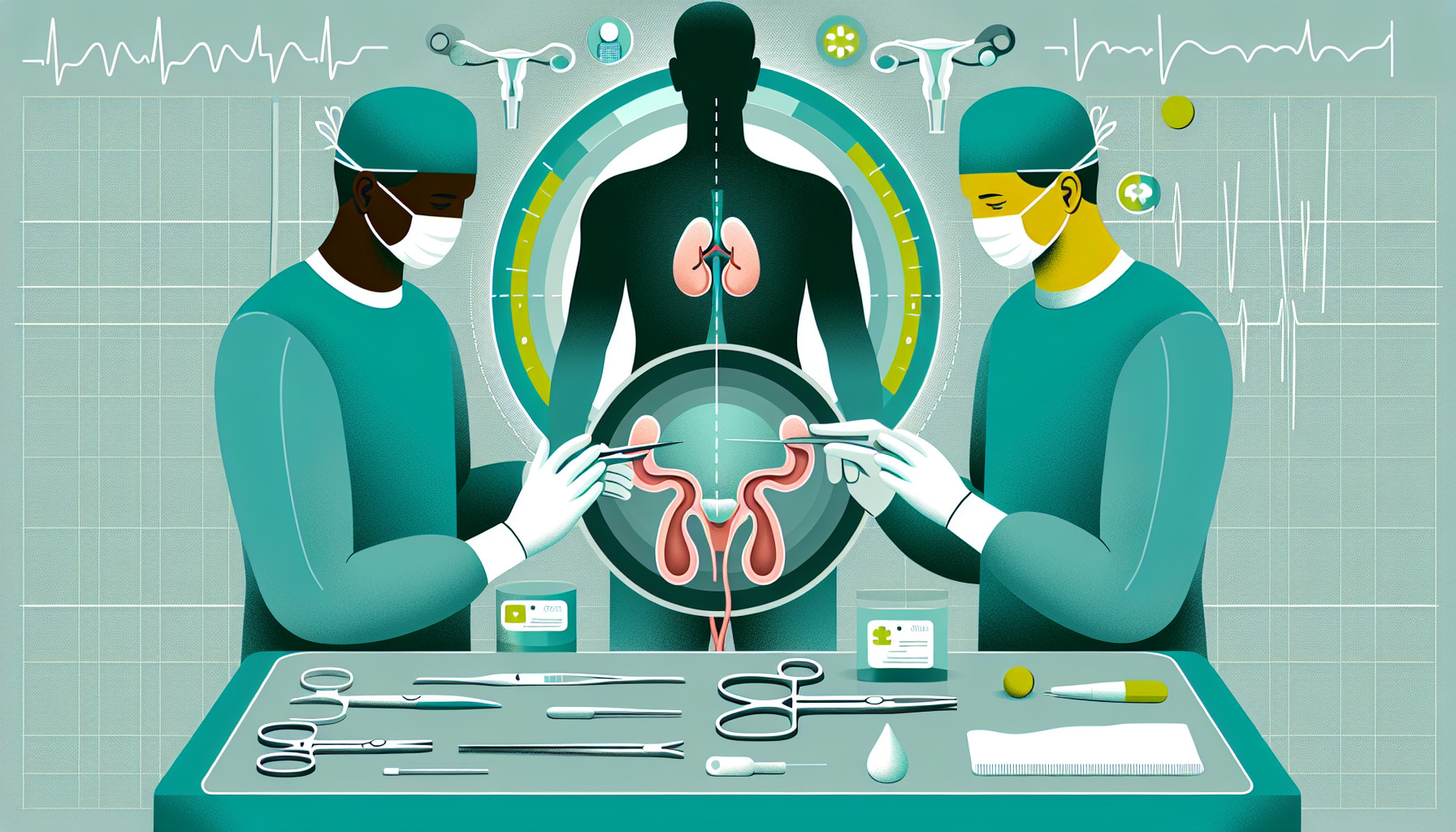Our Summary
This study compared two methods of surgery for bladder cancer: open radical cystectomy (ORC), which is a traditional open surgery, and robot-assisted radical cystectomy (RARC), which uses a robot to assist the surgeon. Researchers looked at various outcomes including time until the cancer returned, complications after surgery, length of hospital stay, and quality of life.
The study found that both methods had similar outcomes in terms of time until cancer returned, major complications after surgery, quality of life, and rates of positive surgical margins (the amount of cancer left after surgery). They were not sure if the robot-assisted surgery led to fewer minor complications. However, they did find that patients who had the robot-assisted surgery were less likely to need blood transfusions and may have a slightly shorter hospital stay.
The researchers did not look at the cost-effectiveness of the two methods. They also couldn’t conduct some analyses they had planned on factors like patient age, cancer stage, body shape, or surgeon expertise. The authors noted that the evidence they used had some limitations and was not always precise.
FAQs
- Did the study find a difference in cancer recurrence between open radical cystectomy and robot-assisted radical cystectomy?
- Does robot-assisted surgery result in fewer minor complications compared to traditional open surgery?
- What factors were not included in this study comparing the two methods of bladder cancer surgery?
Doctor’s Tip
Overall, it’s important for patients considering a cystectomy to discuss the pros and cons of both open radical cystectomy and robot-assisted radical cystectomy with their doctor. Each method has its own benefits and potential risks, so it’s important to weigh these factors carefully before making a decision. Additionally, it’s important to follow your doctor’s recommendations for post-operative care and attend any follow-up appointments to monitor your recovery and overall health.
Suitable For
Patients who are typically recommended for cystectomy include those with bladder cancer that has not responded to other treatments such as chemotherapy or radiation therapy, those with high-grade or aggressive forms of bladder cancer, and those with muscle-invasive bladder cancer. Additionally, patients with non-muscle invasive bladder cancer that has recurred multiple times or has a high risk of progression may also be recommended for cystectomy. Ultimately, the decision to undergo cystectomy is based on individual factors such as the stage and aggressiveness of the cancer, overall health and fitness for surgery, and patient preferences.
Timeline
Before cystectomy:
- Patient is diagnosed with bladder cancer and undergoes various tests to determine the stage and extent of the cancer.
- Patient may undergo chemotherapy or radiation therapy to shrink the tumor before surgery.
- Patient and their healthcare team discuss treatment options and decide on radical cystectomy as the best course of action.
- Patient undergoes pre-operative preparations such as fasting, bowel preparation, and meeting with the surgical team to discuss the procedure.
After cystectomy:
- Patient undergoes either open radical cystectomy or robot-assisted radical cystectomy as determined by the surgical team.
- Patient spends time in the hospital recovering from surgery, receiving pain management, and learning how to care for their urostomy (if applicable).
- Patient may experience complications such as infection, blood clots, or urinary issues post-surgery.
- Patient undergoes follow-up appointments and monitoring to check for cancer recurrence and adjust to life without a bladder.
- Patient may experience changes in quality of life, such as adjusting to a new way of urinating or dealing with emotional effects of surgery.
What to Ask Your Doctor
What are the potential risks and complications associated with a cystectomy surgery, particularly with the method being recommended (open radical cystectomy vs. robot-assisted radical cystectomy)?
How long is the recovery process expected to be after the surgery, and what can I do to help speed up my recovery?
What are the potential long-term effects of a cystectomy, and how might it impact my quality of life?
How often will I need to follow up with my doctor after the surgery, and what kind of ongoing monitoring will be necessary?
Are there any alternative treatment options to consider, and how do they compare in terms of effectiveness and potential side effects?
Will I need any additional treatments, such as chemotherapy or radiation therapy, following the cystectomy?
How experienced is the surgical team in performing cystectomies, and what is their success rate with this procedure?
Can you provide more information about the specific outcomes of the study comparing open radical cystectomy and robot-assisted radical cystectomy, and how do these findings apply to my individual case?
Are there any specific factors about my health or the characteristics of my cancer that might make one surgical approach more suitable than the other?
What is the expected cost of the cystectomy procedure, including any potential additional treatments or follow-up care, and will my insurance cover these expenses?
Reference
Authors: Rai BP, Bondad J, Vasdev N, Adshead J, Lane T, Ahmed K, Khan MS, Dasgupta P, Guru K, Chlosta PL, Aboumarzouk OM. Journal: BJU Int. 2020 Jun;125(6):765-779. doi: 10.1111/bju.14870. PMID: 31309688
